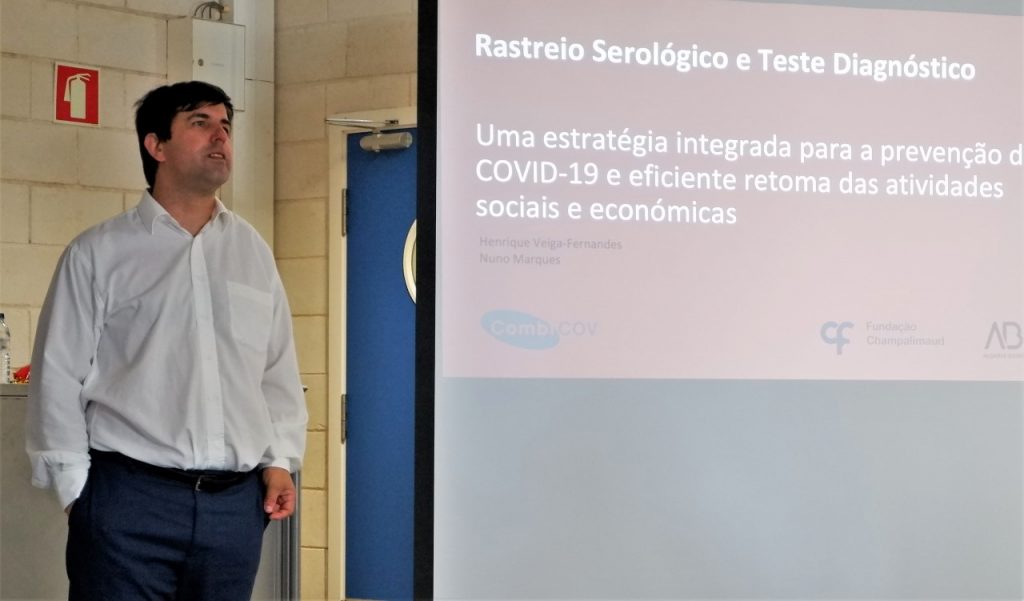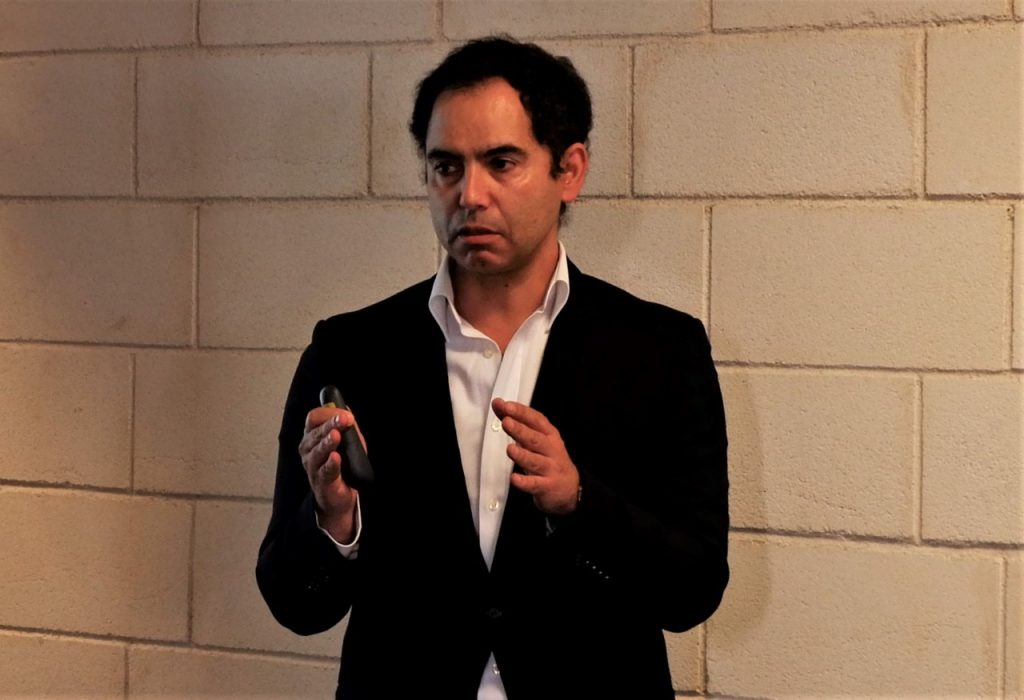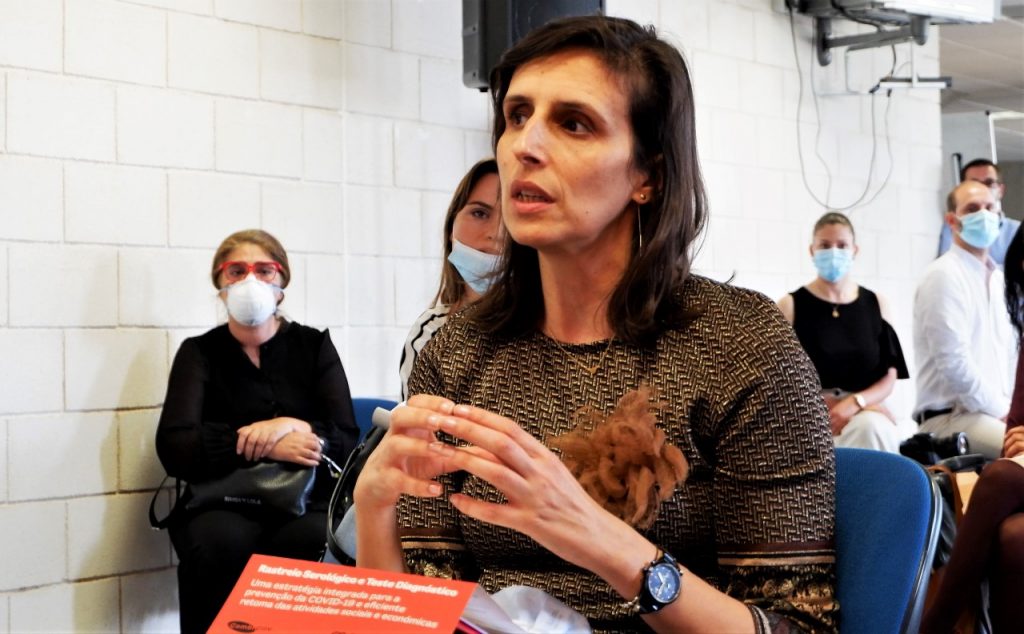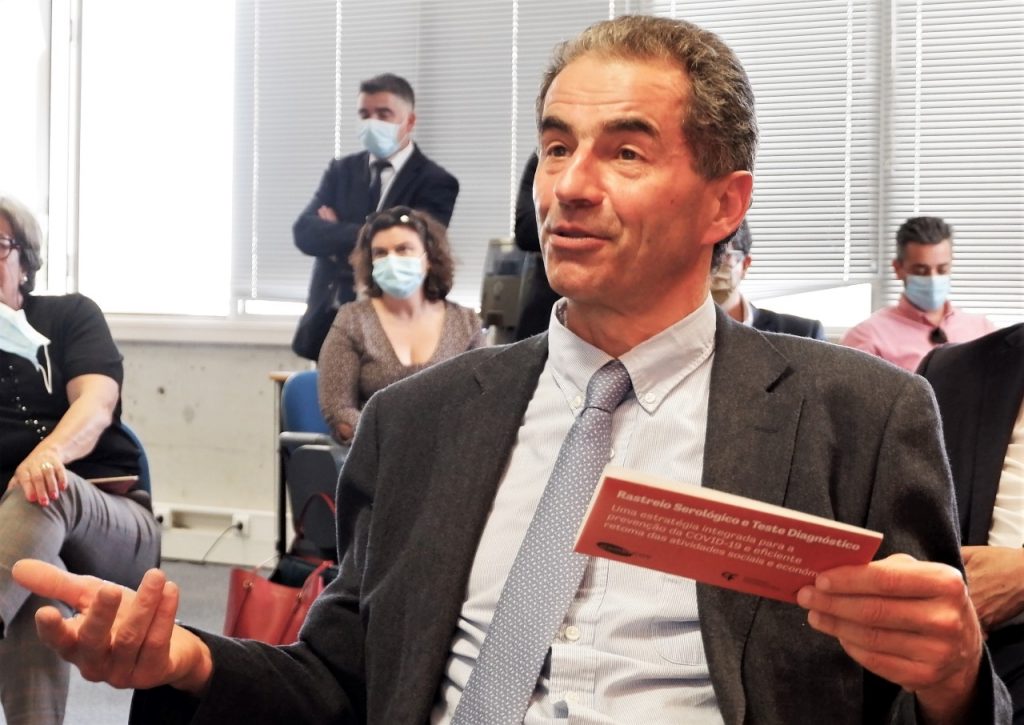They had no or few symptoms of Covid-19, but that did not stop 33 of the 1235 Loulés who underwent serological tests as part of a pilot study carried out by the Algarve Biomedical Center and the Champalimaud Foundation from having antibodies against the new coronavirus, as they already had had the disease.
In the last few days – in just three days – citizens of Loulé who, due to their professional activity, have a higher risk of infection were tracked, namely health professionals, security forces, firefighters and elements of civil protection, employees of homes and similar institutions, employees of central or local government service companies – including those of the Loulé Market – and journalists. In all, there were 34 people who had antibodies, one of whom later tested positive for the disease. The rest have had it, without realizing it, and have already won it.
Basically, and taking advantage of the analogy used by those responsible for this study, physician Nuno Marques, director of ABC, and immunologist Henrique Veiga-Fernandes, from the Champalimaud Foundation, the study revealed that, also in Loulé, the diagnosed cases are « just the tip of the iceberg».
“We carried out 1235 tests and demonstrated that we have, in reality and in the populations at risk that we tested, a rate of cases much higher than those that are known”, according to Nuno Marques.

This was one of the conclusions of the study carried out in the Algarve, which had as a nerve center a drive-thru installed next to what already existed in the Algarve Stadium, to carry out these serological tests, which detect antibodies to the new coronavirus present in the blood. The structures set up for this purpose were visited this afternoon by Manuel Heitor, Minister of Science and Higher Education, and by Jamila Madeira, Secretary of State for Health, as well as by the other two Algarve secretaries of State, José Apolinário and Jorge Botelho.
In addition to learning about the logistics of the tests, the members of the Government and other delegations learned about the results of the study and the methodology used.
At the outset, the study's authors already knew that most people infected with the new coronavirus do not develop symptoms, taking into account that there are studies that indicate that the number of people who had the disease without knowing it will be «5 to 20 times superior' to those of diagnosed cases. In the population studied in Loulé, the percentage of people with antibodies to the new coronavirus was 2,8%, 14 times higher than the prevalence of the disease among this population at risk, in Loulé, which is 0,2%.
“We might think that 2,8% is low. But I'm glad it is, because the frequency per diagnosis is 0,2%. This reveals, on the one hand, the efficiency of the measures. On the other hand, even with very efficient measures, with diagnostic tests, what we see is just the tip of the iceberg and there is a vastly superior universe of people who were infected and had no symptoms, or in which these were so slight that they were not valued». considered Henrique Veiga-Fernandes.

Still, these numbers were not the great triumph of the work that was done. “The big news in this study of ours was the combined use of the two types of test [serological and diagnostic], in order to increase sensitivity, managing to maximize efficiency in the use of resources. We have defined something that, while maintaining safety for the population, is perfectly feasible anywhere in the country, by healthcare institutions that manage to implement it very quickly», explained Nuno Marques.
And it didn't take long to create Combicov, an integrated strategy created jointly by the ABC and the foundation based in Lisbon, which combines serological screening with diagnostic tests and intends to contribute to the «prevention of Covid-19 and the resumption of activities social and economic'.
“A fortnight ago, we could have been exchanging small ideas about this, but very quickly we set up this operation”, explained the director of ABC. In practice, a system for collecting samples was created, in this case of blood, with eight posts, with the capacity to carry out «about a thousand daily tests».
More than a portrait of the current situation – and, in the case of serological tests, of what was in the past – the model created by the Algarve Biomedical Center and by the Champalimaud Foundation allows “a monitoring of the situation over time, which can take us to identify the population's exposure rate, in a given area, relatively quickly, safely and with great sensitivity, using a strategy that is very efficient».

The fact is that, by using serological tests, which are much faster but also much cheaper than diagnostic tests, the so-called PCR, it is possible to see, on the one hand, who has already had the disease, but also to identify people who can still infected, while discarding those who are not. This is among people for whom there is no obvious reason to suspect that they are sick.
This makes it possible to reduce costs, as it avoids having to carry out costly diagnostic tests for all professionals at risk.
«We are arranging a strategy here, which maximizes the sensitivity, the security of what we give to the population, minimizing costs and, above all, making it feasible anywhere in the country», summarized Nuno Marques.
Henrique Veiga-Fernandes believes that the fact that this strategy goes beyond diagnostic tests allows us to fight the disease more efficiently.
“This model gives us more concrete epidemiological information and numbers to study and predict the evolution of the pandemic, while allowing us to maximize resources, to have more population subject to serological screening and, eventually, to diagnostic tests. This allows us to rationalize costs, both in operational terms and in terms of reagents, while ensuring the greatest possible sensitivity in detecting positive cases», reinforced the immunologist.

In the end, Manuel Heitor praised the study, considering it «a very important contribution of science, in this period of great uncertainty».
Even because, warned the Minister of Science and Higher Education, "while there is no vaccine or therapy for Covid-19, the diagnosis is particularly important."
«We will do everything so that this experience, which is based on a scientific study, but also on a practical reality, can be carried out in other areas, because what has been shown is that the study carried out here in Loulé is very important to give people confidence and it was efficient. , both in scientific and economic terms,” he added.
In the Algarve, Nuno Marques revealed, "the realization of tests similar to the population at risk in other municipalities in the Algarve is under study". The Minister of Science is «confident that there is human and scientific capacity, as well as the necessary resources, to be able to move forward with this study in other parts of the Algarve and the country and make this a reference in the world».
Jamila Madeira, on the other hand, despite classifying this study as "something very interesting for the Ministry of Health and for the Government" and the methodology created as "an interesting path to be taken into account, which could have a lot of future", was more cautious in the time to buy the idea.
"Right now we are still scientifically evaluating which way to go," he said. There was also no commitment on the part of the Secretary of State about who will be subjected to serological tests – whether the entire population or which specific groups.
Help us to do the Sul Informação!
Contribute your donation so that we can continue to make your journal!
Click here to support us (Paypal)
Or use our IBAN PT50 0018 0003 38929600020 44



















Comments